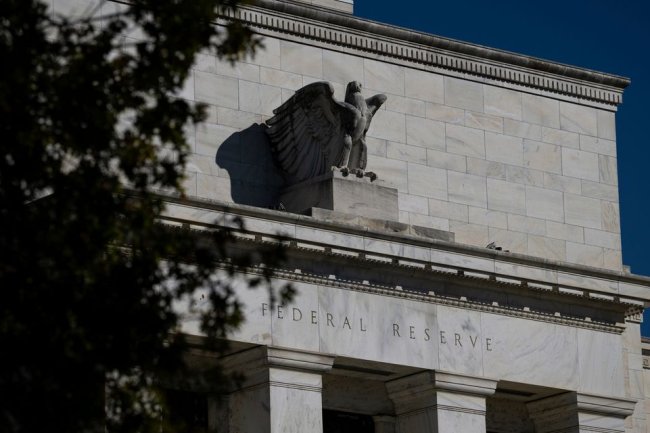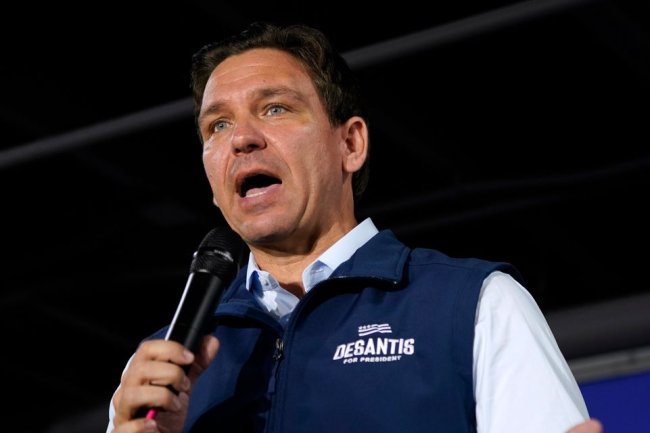Inflation Slows, but Don’t Expect Political Relief
As Spain and other places show, the real problem is a lack of growth, causing wages to lag behind prices. By Joseph C. Sternberg July 27, 2023 2:15 pm ET Pedro Sanchez speaks at a rally in Getafe, Spain, July 21. Photo: javier soriano/Agence France-Presse/Getty Images To judge from the headlines in many parts of the world—not to mention the sunny tone ahead of this week’s Federal Open Market Committee meeting—you would think we’re finally turning the corner on inflation. Many politicians appear to be breathing sighs of relief. Oh no, mes amis: Your struggles are only beginning. The trouble is that too often economists and politicians on one side and households full of voters on the other talk past each other on this all-important economic phenomenon. The so-calle


Pedro Sanchez speaks at a rally in Getafe, Spain, July 21.
Photo: javier soriano/Agence France-Presse/Getty Images
To judge from the headlines in many parts of the world—not to mention the sunny tone ahead of this week’s Federal Open Market Committee meeting—you would think we’re finally turning the corner on inflation. Many politicians appear to be breathing sighs of relief. Oh no, mes amis: Your struggles are only beginning.
The trouble is that too often economists and politicians on one side and households full of voters on the other talk past each other on this all-important economic phenomenon. The so-called professionals fixate on the rate of change—the inflation rate. But what matters to anyone who actually buys anything is the price.
We can all agree that rapid increases in prices from one month or year to the next cause households and businesses considerable distress. The pros too easily forget that the distress lingers for as long as the level of prices remains higher relative to incomes, no matter whether the rate of increase has slowed. This has become an important political fact around the world.
Spain offers the latest example. Incumbent Prime Minister Pedro Sánchez avoided a total wipeout in last weekend’s election, but the notable outcome of that vote was a resurgence of the center-right Popular Party. The party’s rise baffled Mr. Sánchez’s Socialist supporters and left-wing political analysts even before the election. All economic indicators appeared to be positive for an incumbent. Allies alert to the political hazards of inflation were quick to remind at every opportunity that Spain’s inflation rate had fallen to 1.9% in the year leading up to June, the lowest of any major economy in the European Union.
Yet surveys consistently found that the economy, and specifically inflation, ranked among voters’ top concerns headed into the election. The data tell Spanish voters they’re no longer suffering severe price increases. But they appear to have voted as if they are. For all the media cheer, Mr. Sánchez didn’t get sufficient credit for his allegedly good economic performance to avoid the embarrassment of a hung parliament. Why?
One answer to this riddle is the price level. A lower inflation rate today obscures that Spain’s consumer price index rose 15% between January 2021 and June 2023. Nominal wages grew around 10%. No wonder voters seemed to be in a sour mood about the Sánchez economy, since these two data points in combination point to a noticeably lower standard of living.
Before Spain, there was the U.K. Superficially, a mystery of British politics has been the persistent rebelliousness of the electorate even at times when the economy was growing and inflation appeared to be under control. Most conspicuously, the inflation rate hadn’t exceeded 2% in the 2½ years leading up to the June 2016 Brexit referendum. Yet that narrow surprise result was attributed in part to previously unrecognized discontent with the economy.
Britain’s problem then as now was the price-level hangover from earlier bouts of inflation. After the 2008 financial panic and the ensuing monetary easing, the inflation rate maxed out at 5.2% in autumn 2011. But over the full length of an inflationary cycle, from early 2008 to late 2013, the level of the consumer price index rose a cumulative 21%.
Thanks to another post-referendum inflation surge during which the price index rose 5.6% from 2017 to 2018, median inflation-adjusted household earnings excluding social transfers didn’t return to their pre-crisis level until the 2019-20 fiscal year. By the way, the U.K. price level has increased another 21% since January 2021, with no offsetting real-wage recovery in sight.
Read More Political Economics
- Climate Clashes Split the Left in Germany—and Beyond July 13, 2023
- Joe Manchin’s Green Energy Sanity Has Its Day—in Britain June 29, 2023
- As Ukraine Looks to Its Future, Skip the European Union June 15, 2023
Now let’s do America. Consumer-price inflation has fallen to 3% as of June. But the underlying consumer-price index, reflecting the absolute price level, is 17% higher than it was in January 2021 and getting higher every month that the inflation rate is positive. Income hasn’t kept up, with inflation-adjusted weekly earnings around 2% lower than in January 2021. No wonder President Biden is struggling to convince voters they’re better off economically than they were when he took office. They’re not.
The implication for politicians is that they’ve been getting the politics of prices all wrong. The inflation rate is not their electoral problem—anemic productivity growth is. Following several years in which policy makers allowed prices to spiral out of control, only a sustained increase in productive business investment can support the inflation-adjusted wage growth households around the world require to overcome fully the damage they’ve suffered to their quality of life.
Given that most policy makers across the globe are desperately short of ideas for how to accomplish such a productivity transformation, they shouldn’t expect slowing inflation rates to make their political lives any easier.
Journal Editorial Report: It's too early to know if 'No Labels' could help throw 2024 election to Trump. Images: AP/AFP/Getty Images Composite: Mark Kelly The Wall Street Journal Interactive Edition
What's Your Reaction?






















